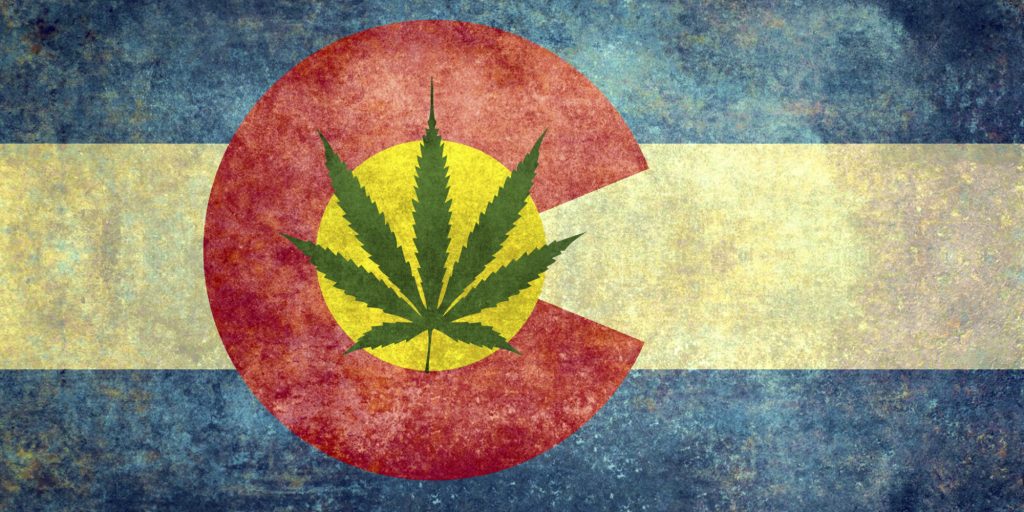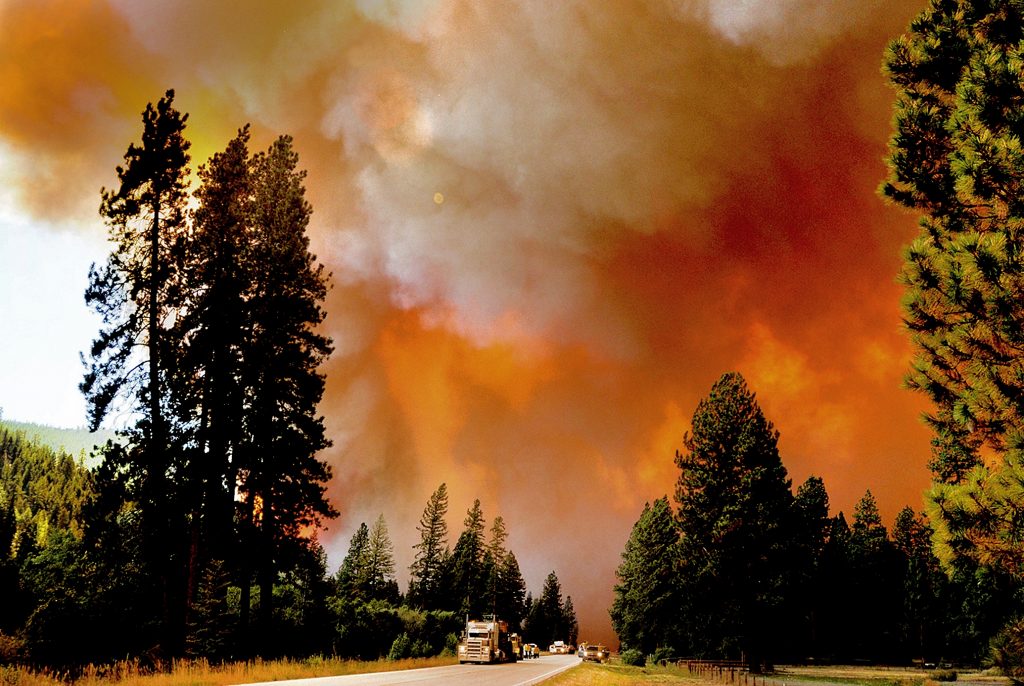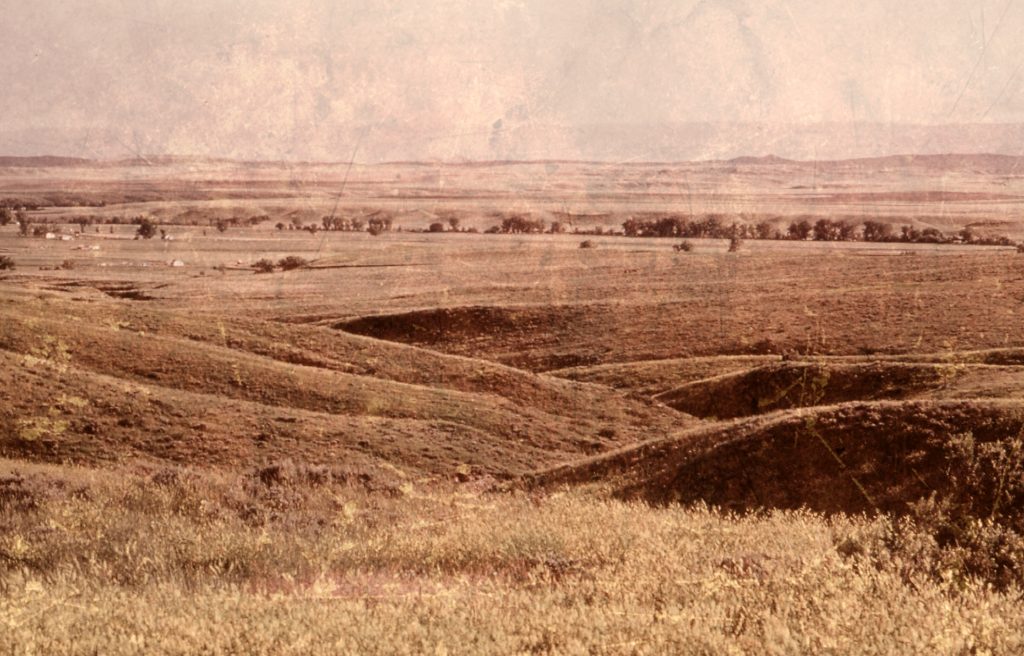Scenes involving large illegal marijuana grows on public and private lands and in gutted-out homes are playing out across Colorado and more frequently on the Western Slope. People have been growing marijuana illegally in Colorado for decades, but law enforcement officials say the uptick in the number and magnitude of illegal marijuana grows have been taxing their resources since recreational marijuana became legal four years ago.
Small towns, big grows
Legalization of marijuana hasn’t put an end to the black market. In fact, it’s ballooning — and straining resources
So it may have been the last place law enforcement and public land managers expected to find thousands of mature and processed marijuana plants, not to mention tons of fertilizer, garbage, irrigation lines, discarded clothes and multiple places where 12-foot holes had been gouged into the earth to conceal all the garbage. Armed individuals had been living and maintaining two massive illegal marijuana growing operations here, even tending a garden on public land, authorities said.
After conducting surveillance and arresting 10 people in connection with the grows more than a year ago, officials from a number of agencies just weeks ago capped a cleanup that an official with the Bureau of Land Management dubbed a “herculean effort.”
“To much of the credit of law enforcement, in my nearly 15 years of federal service, there’s been very few times I’ve seen this many agencies get involved to help,” said Chris Joyner, spokesman for the Grand Junction field office of the BLM.
To return the area to its natural habitat, the BLM relied on the help of the Colorado National Guard, which employed a Blackhawk helicopter to fly tons of trash, pesticides, marijuana plants and remnants of camps over the river to trucks waiting along the roadway. The holes were refilled.
“You’re talking about some really serious safety hazards,” Joyner said. “Literally this stuff was five feet from the Dolores River. This is something we can’t allow to sit there. It’s a hazard to the public. I wouldn’t want to stumble upon this with my two little girls.”
Scenes involving large illegal marijuana grows on public and private lands and in gutted-out homes are playing out across Colorado and more frequently on the Western Slope. People have been growing marijuana illegally in Colorado for decades, but law enforcement officials say the uptick in the number and magnitude of illegal marijuana grows have been taxing their resources since recreational marijuana became legal four years ago.
■ ■ ■
In his nearly three decades with the Drug Enforcement Administration, Grand Junction agent Glenn Gaasche hasn’t seen anything like the marijuana grows in western Colorado in the last few years.
In 2014, officials with the local DEA office — with the help of local law enforcement agencies — seized three tons of marijuana. In 2015, they seized nearly five tons of marijuana, and already this year the DEA has seized another five tons.
Gaasche chuckles at the notion that legalizing marijuana in Colorado would eliminate the black market industry. The Grand Junction DEA office, which serves the entire Western Slope, responded to no large-scale, illegal marijuana grows in 2012, the year voters made personal use and commercial sale of marijuana legal. This year, local agents have responded to more than a dozen such grows.
The grows originate here, but most of the finished crop is shipped elsewhere. Most of the grows are conducted by individuals who have moved to Colorado from other areas, the suspects seeking out Colorado to grow marijuana as a kind of safe harbor since marijuana became legal, Gaasche said.
“These are serious, illegal grows. This isn’t your guy walking down the street smoking a joint. We don’t care about him,” he said.
During a six-week period last fall, the DEA arrested 32 people in connection with illegal marijuana grows across Colorado, seizing 20,000 marijuana plants and more than 650 pounds of dried marijuana. One grow was discovered on private land in Cotopaxi and Westcliffe, but the others were uncovered on public lands. Authorities raided grows in the Buffalo Pass area of Routt National Forest, in the San Isabel National Forest and the previously mentioned grows on BLM land off the Dolores River.
A pound of marijuana sells for $2,000 to $2,500 in Colorado, but can fetch up to $4,000 a pound in other states, Gaasche said. A marijuana plant can produce one pound of finished marijuana every 90 days.
“The question you probably have and the one that I have at the end of every day is, ‘Why would you ever enter into the legal, regulated system (of growing marijuana) when you see all the money that could be made?’ ” he said, tongue-in-cheek.
Adult Colorado residents can legally grow up to six marijuana plants, but it is not legal for residents who are not registered with the state to sell marijuana.
As of Oct. 3, the state of Colorado reported that it regulates 610 legal marijuana cultivation sites, according to the Colorado Department of Revenue. There are 454 recreational marijuana stores, 225 product manufacturers and 14 testing sites.
The DEA’s concerns center on the unlimited number of marijuana plants a medical marijuana patient can currently grow if a doctor deems it “medically necessary.”
According to the DEA, physicians’ recommendations to patients to grow 75 to 99 plants are being used to justify large residential growing operations, many of which are producing marijuana for sale outside of Colorado.
In conjunction, according to Colorado’s Amendment 64, any adult can assist another adult in “possessing, growing, processing or transporting” marijuana.
“Consequently, large grows and/or quantities of processed marijuana within a residence are often justified through the claim that the resident is assisting others by growing or storing their marijuana,” according to an intelligence report the DEA released this summer. “As there is no mechanism at the state or local level to document or regulate recreational marijuana home grows, there is not practical means for local police to verify whose plants are grown or whose marijuana is stored in any given residence.”
By January 2017, state legislation will go into effect to limit the number to 99 marijuana plants that can be grown on private land.
In one concerning trend, more people from Florida than any other state are moving to Colorado. The DEA reported 9,006 Floridians obtained Colorado driver’s licenses in 2014, and more than 10,000 Floridians did so the following year. The number of people from Florida relocating to Colorado is concerning to federal authorities because some of those Florida residents arrested in Colorado have had ties to the drug cartel.
Of course, not all Floridians who move to Colorado are growing marijuana illegally, but some of them are, Gaasche said. In general, in every illegal marijuana grow worked by the DEA, other criminal elements are present. Growers are dealing in other drugs, have weapons or are working other crimes, he said.
“There is a flood of marijuana and a flood of criminal activity coming into our community. That’s why they’re here. We asked them to be here,” he said, referring to legalizing marijuana in Colorado.
Gaasche said he wanted to be clear the DEA is only working cases in which people are 100-percent noncompliant with any of Colorado’s marijuana laws. Those who are growing marijuana illegally are not paying taxes or following any of the strict regulations that legal enterprises follow to track marijuana plants from seed to sale.
“These medical marijuana and recreational marijuana shops, we’re their only hope,” Gaasche said about ensuring the black market doesn’t eclipse legal marijuana enterprises.
■ ■ ■
Small communities on the Western Slope are dealing with the effects of big illegal marijuana grows. Consider the example in Delta County that authorities uncovered in May.
It wasn’t the illegal marijuana grows in four homes in Delta County in May that first caught the eye of Delta County sheriff’s deputies. It was the daily deluge of phone calls from locals who were watching money being siphoned from their bank accounts and their credit cards.
Twenty-one local victims reported their credit and debit cards were being used to go on shopping sprees at Sam’s Club, Walmart, JC Penney and various gas stations. Stolen money was used to purchase a $310 bottle of Patron tequila. Before two suspects were arrested, locals had been deprived of a combined $43,000.
In narrowing down the thefts, Delta County Sheriff’s Office detective Jason Warth discovered a credit card skimming machine on a gas pump at a Delta gas station.
“This case is a prime example of how Colorado as a whole did not see the ramifications of legalizing marijuana,” Warth said. “This was an organized criminal enterprise that operated in multiple cases. A lot of time went into that case and a lot of our other stuff gets put on the back burner. It took a lot of manpower and time.”
Two suspects, Raul Castaneda Hernandez, 28, and Joaquin Enrique Cancio Morales, 40, both from Florida, each were charged with two felony counts of identity theft and possession of a financial transaction device.
Delta County authorities allege they are part of a larger drug cartel. They also were connected to illegal marijuana growing operations in four homes. In one abandoned home in Cedaredge that had been used as a marijuana grow site, police found a thumb drive with the identities and personal banking information of 470 people, including most of the locals who had their identities stolen.
Essentially, the criminals were using information from the skimming machines to create new credit cards, and using the new cards to purchase items from stores around the region.
Members of the network had rented two homes and bought two others solely to grow marijuana in the Delta area, deputies said.
“At least one house is completely ruined,” Warth said. “They had no problem setting up shop here. The whole purpose was to take the marijuana to Florida.”
The Sheriff’s Office has been working to eradicate illegal marijuana growing operations for decades. Yet since the law now allows Coloradans to possess and grow marijuana, deputies tread much more carefully in assessing whether someone is operating a legal or illegal marijuana growing operation. They also find themselves on marijuana compliance duty much more often.
The complaints come into the office constantly from residents reporting that they smell, see or know about marijuana growing operations in their neighborhoods. To streamline follow up and determine whether the growing operations are legal or illegal, the Sheriff’s Office has drafted a compliance form it distributes to people who are suspected of growing marijuana illegally.
“A complaint has been made or we have reason to believe that you are cultivating marijuana plants and not in compliance” with the law, the form letter reads. Plants must be grown in an enclosed, locked space and residents have 10 days to comply with the law, the letter states.
“The guy that grows six to 12 plants, we don’t care about the people that are doing it legally,” Delta County Undersheriff Mark Taylor said. “We have a lot of grows in Delta County. Some are legal. Some are not.”
■ ■ ■
In Garfield County, a massive, illegal marijuana growing operation was so established it was removed thanks to heavy construction equipment from the road and bridge department.
Sheriff Lou Vallario said the raid on the illegal grow of more than 3,000 marijuana plants on private land off Mile Pond Road east of Rifle in mid-September likely cost taxpayers tens of thousands of dollars at least.
For two days, county workers used track hoes to rip up plants that appeared to be two to three years ago, with stalks so thick they couldn’t be pulled up by hand. The 150,000 pounds of marijuana plants were hauled to the landfill with the county’s dump trucks. The whole lot likely would have fetched profits of $4 million to $6 million, Vallario said.
The operation took the effort of the multijurisdictional Two Rivers Drug Enforcement Team, the DEA and U.S. Immigration and Customs Enforcement.
“It’s very draining and taxing on the taxpayers. From the illegal growers’ point of view, they’re counting on that — that it’s too much hassle for law enforcement,” Vallario said. “I think these guys think they are looking at a free-for-all.”
Fourteen Chinese nationals were arrested in connection with the grow. The initial thought that they might be involved in a human trafficking endeavor is unfounded so far, Vallario said.
In this case, growers were stealing irrigation water to feed the marijuana plants.
Vallario said since this illegal marijuana growing operation was taken down, the experience has emboldened the department to take down a few more illegal operations.
“If you violate the law, we’re going to come after you,” he said. “We’ve come across a lot of illegal marijuana, people with 100 plants in their backyard when they’re only allowed six. Obviously we’re opposed to it, but (marijuana) is legal. We want to draw the line. Colorado needs to draw the line and have it enforced.”
Getting into the business of enforcing marijuana growing operations was something local law enforcement agencies never expected, Vallario said. In the past, law enforcement had a much easier time making an arrest.
“Before, if you look over the fence and see marijuana, you go over and arrest them,” he said. “Now it’s almost like we have to do an inspection and analysis. There’s a matrix to it.”
Amy Hamilton















There was an interesting piece on the 60 Minutes program on 10/30/2016 that examined Pueblo’s experiences since marijuana has been legalized in Colorado at http://www.cbsnews.com/news/60-minutes-five-states-to-vote-on-recreational-pot/ .